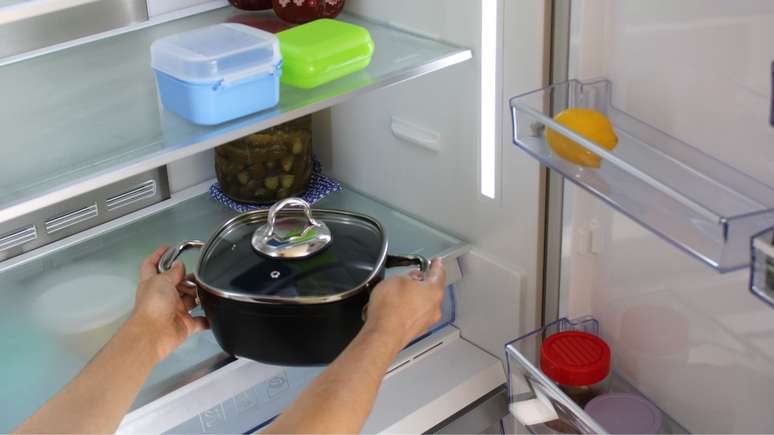The expert explains how to store food in the refrigerator to prevent it from deteriorating quickly and causing health problems
Eating spoiled food is a huge danger, isn’t it? For this reason it is necessary to pay close attention every day to prevent this from happening and causing serious consequences. Always checking the expiry date and not consuming something if it smells bad, for example, are actions that most people already do routinely.
However, another precaution that many people end up forgetting or don’t even know how to take is store leftover food in the refrigerator properly. After all, if stored incorrectly or even left there for a long time, they can cause big problems.
Before talking about how this preservation should be done, it is important to point out that not all food should be preserved for later. According to the nutritional coordinator of the Newton Paiva University Center, Dr. Priscila Bernardes, in general, refrigeration of fatty and fried foods is avoided, since they can quickly go rancid.
“Even leftovers from dishes with starchy sauces can change the texture of the dish if stored in the refrigerator, so it’s not a good idea to keep them. There are also crunchy ingredients, such as straw potatoes, that can shrivel if refrigerated,” he adds. . The expert also says that meat and fish should, if possible, be frozen and not just refrigerated.
In the case of foods that can be placed in the refrigerator, they can usually stay there for up to 3 days. However, it is worth remembering that this will depend on storage conditions and other factors, so you always need to carefully analyze whether they are still good.
Care of storage
But, after all, what is the correct way to store food in the refrigerator? Below, Dr. Priscila provides some essential tips:
- Fish, poultry, beef, shrimp and other seafood should not be left cooked or raw for more than two hours before being refrigerated.
- Egg-based sauces, such as mayonnaise, should not be left out of the refrigerator for more than 1 hour, to avoid the risk of proliferation of microorganisms, such as Salmonella.
- In case of temperature above 30 ºC, no cooked food should be left out of the refrigerator for more than 1 hour
- Food should be stored in airtight or food-safe containers. This helps preserve flavor and prevents contamination.
- It’s important to use labels containing the dates leftovers were stored, so you know how long they are still safe to eat. The older ones should be first in line to be consumed first
- Separate raw food scraps from cooked ones to avoid cross-contamination and store raw meat separately and in the lowest part of the refrigerator.
- Clean your refrigerator regularly to avoid unpleasant odors and contamination
- The ideal temperature for storing already prepared foods in the refrigerator is below 5ºC.
What about food delivery?
According to the expert, when it comes to leftover food from delivery, even more caution is needed, since the conditions for preparing and storing it are unknown. If the option is to store food in the refrigerator, the following factors should be taken into account:
- Do not store food in the packaging it arrived in. These parcels may have transited in places where there are not perfect hygienic-sanitary conditions
- It is recommended to transfer these foods into airtight containers, making sure they are tightly closed.
- Finally, never put food away if it contains cutlery that you have already put in your mouth.
Source: Terra
Ben Stock is a lifestyle journalist and author at Gossipify. He writes about topics such as health, wellness, travel, food and home decor. He provides practical advice and inspiration to improve well-being, keeps readers up to date with latest lifestyle news and trends, known for his engaging writing style, in-depth analysis and unique perspectives.








